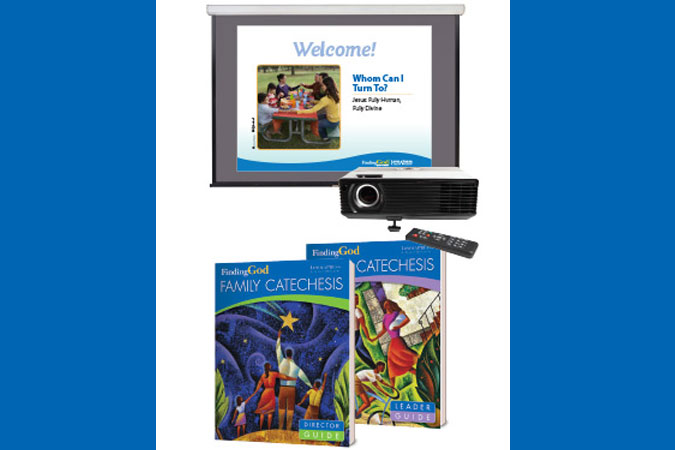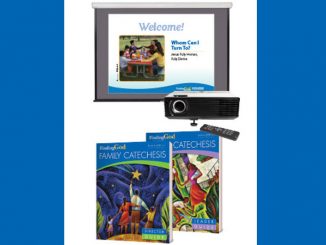
For the month of March, our Finding God Family Catechesis gathering at St. Barnabas will focus on the unit on Church, with the theme of “Catholic Identity: Does My Faith Make a Difference?”
I particularly love this topic, because we Catholics indeed have unique ways of thinking, speaking, and acting that can and should make us stand out from the crowd! In this session, we will explore five characteristics of Catholic identity as drawn from my book, Practice Makes Catholic:
- A Sense of Sacramentality
- A Commitment to Community
- Respect for the Dignity of Human Life and a Commitment to Justice
- A Reverence for Tradition
- A Disposition to Faith and Hope and Not Despair
With the parents, we will do a couple of activities that I really enjoy facilitating and I’m sure the parents will enjoy as well. Both are designed to identify elements of Catholic identity.
- The first activity is to imagine that you are hired as a creative consultant by a Hollywood director who is making a film about a Catholic family. The director needs your input to ensure that the film looks, sounds, and “feels” Catholic. The director wants you to:
- offer suggestions for things that the Catholic characters might say or do that identifies them as Catholic.
- offer suggestions for how the set (the home of a Catholic family) might look or feel Catholic.
The parents will work in groups at their tables and then report on their recommendations as they post their lists on the wall. I will use these examples to help illustrate the five characteristics of Catholic identity mentioned above. This activity is always fun and helps Catholics to recognize some of our unique characteristics and to be able to articulate them.
- The second activity, for the characteristic of sacramentality, invites parents to participate in a kind of show-and-tell and introduces the language of mystery. I invite them to think of things we do at Mass with our hands, arms, and bodies to express ourselves without using words (or accompanied by words). Examples include the Sign of the Cross, bowing, genuflecting, striking the breast, and making the threefold Sign of the Cross on our foreheads, lips, and hearts. Participants are usually quite delighted at how much they recognize these actions but perhaps don’t understand or take for granted. It is always a fun way to delve into sacramentality, and folks always seem to get a kick out of me miming the act of blessing them with incense as I cough from all the smoke.
These two main activities will be supplemented by a couple of other brief table discussions but, all in all, it should prove to be another high-engagement session!





I like the parent activities listed! Please mention what the children will be doing with their catechists during this time. Thank you!
Hi Nancy, in general, the catechists will be leading the children through the first chapter of the new unit while the parent session is taking place. The parents then teach the remaining chapters of the unit at home.
I’m proud to be comes roman Catholic
The need of parents to have some direction and guidance along the line of knowledge and love of the Catholic Church is paramont for survival. Thank you so much for your encouragement in bringing the tenets of the Catholic Church to all.
The knowledge of Child development is evident in the activities proposed. I am grateful for your knowledge and advocacy of our Church’s teachings.
Thank you so much, Dr. Knight!